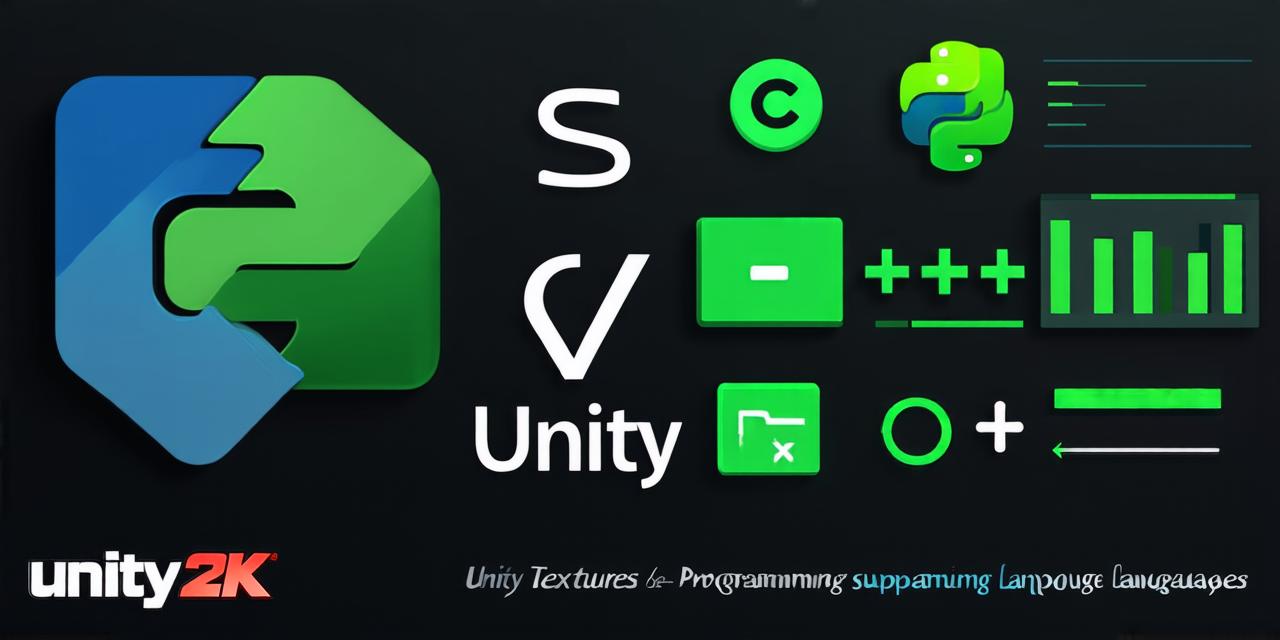Python Support in Unity
Python is a high-level, interpreted programming language that is widely used in game development. It has a large and active community of developers who contribute to its various libraries and frameworks. Python’s support in Unity includes the ability to write scripts using Python code and use those scripts in Unity projects.
Python scripts can be written directly in Unity or using an external editor such as Visual Studio Code. Once a Python script is written, it can be imported into Unity and attached to game objects or other elements in the scene. Python scripts can also interact with Unity’s built-in C code, making it easy to use both languages together.
Python has several advantages when used in Unity. It is a simple and easy-to-learn language that requires less boilerplate code than C++, which can save time and effort for developers. Additionally, Python has a large number of built-in libraries and frameworks that can be used to simplify game development tasks such as physics simulation, animation, and AI.
However, there are also some limitations to Python support in Unity. For example, Python is an interpreted language, which means that it runs slower than compiled languages like C++. Additionally, Python has a smaller runtime memory footprint compared to C++, which can make it less suitable for large-scale games with complex graphics and physics simulations.
C++ Support in Unity
C++ is a low-level, compiled programming language that is commonly used in game development due to its speed and performance. It has a smaller community of developers compared to Python, but it is still widely supported in the game industry. C++ support in Unity includes the ability to write scripts using C++ code and use those scripts in Unity projects.
C++ scripts can be written directly in Unity or using an external editor such as Visual Studio. Once a C++ script is written, it can be imported into Unity and attached to game objects or other elements in the scene. C++ scripts can also interact with Unity’s built-in C code, making it easy to use both languages together.
C++ has several advantages when used in Unity. It is a compiled language, which means that it runs faster than interpreted languages like Python. Additionally, C++ has more control over system resources, which can be useful for optimizing game performance and memory usage. Finally, C++ has a larger number of built-in libraries and frameworks compared to Python, which can simplify game development tasks such as physics simulation and network programming.
However, there are also some limitations to C++ support in Unity. C++ is a low-level language, which means that it requires more boilerplate code than higher-level languages like Python. Additionally, C++ has a larger runtime memory footprint compared to Python, which can make it less suitable for smaller-scale games with simpler graphics and physics simulations.
Which Language is Better Suited for Unity?
The choice between Python and C++ support in Unity depends on the specific needs of the game being developed. If the game requires complex physics simulations, AI, or other resource-intensive tasks, then C++ may be the better choice due to its speed and performance. On the other hand, if the game is smaller in scope and doesn’t require advanced graphics or physics simulations, then Python may be a more suitable choice due to its simplicity and ease of use.

In addition to these factors, it’s also important to consider the development team’s experience and familiarity with each language. If the team has more experience with C++, then it may be easier for them to develop the game using that language. Conversely, if the team is more comfortable with Python, then that language may be a better fit.
Summary
Unity supports both Python and C++, allowing developers to choose the language that best suits their needs. While there are limitations to each language’s support in Unity, both can be used effectively for game development tasks. Ultimately, the choice between Python and C++ will depend on the specific requirements of the game being developed, as well as the development team’s experience and familiarity with each language.


